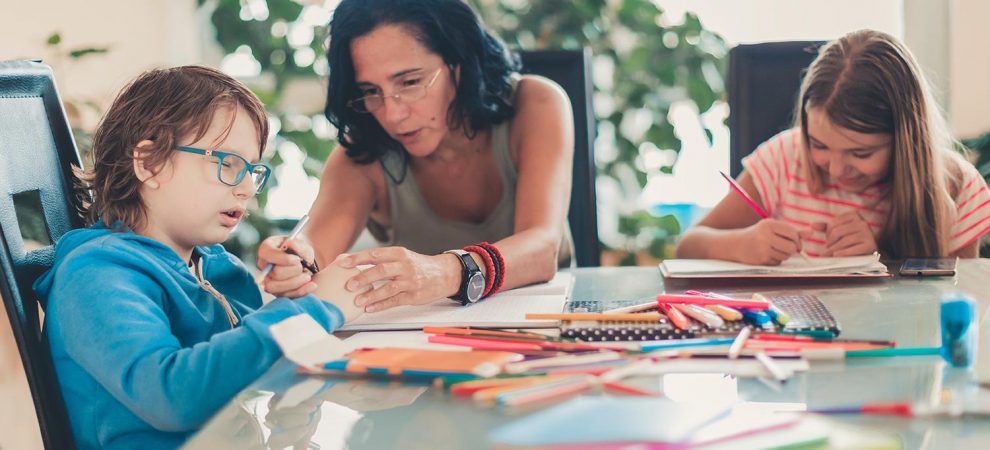The impact of school shutdowns and the switch to virtual learning may take years to fully understand, but parents and caretakers across the country are already witnessing disturbing signs of fatigue and trauma in their children after months of separation from peers and classrooms.
When schools shut down in March and April due to the COVID-19 pandemic, students and their parents had not envisioned that the approaching summer vacation would lead into a new school year that would also be held virtually. For many families, a few weeks of school closings were manageable, although burdensome, especially for single-parent and working households.
But as 2020 comes to an end, parents explained to the Daily Caller that extensive damage has already been done. They describe failing grades, despair and their child’s sense of invisibility to the world that surrounds them after being away from their peers and classrooms for months with no firm end in sight.
Data accumulated globally has shown that infections did not surge when schools reopened, and the nation’s leading infectious disease expert, Dr. Anthony Fauci, said as much in late November when he called on schools to reopen. While many private schools have reopened completely or partially, some of the nation’s largest school districts are still closed. In Washington, D.C., the city’s teachers union rejected an agreement with the public school system to reopen campuses in November. In Chicago, Philadelphia, Boston, Topeka, San Diego and multiple other cities, districts put off their plans to reopen in mid-November and gave no set date for reopening.
Eileen, a Latin teacher at a Christian Classical school in Maryland, has been able to teach in her regular classroom since Sept. 3, when her school reopened with health and sanitation protocols implemented to prevent COVID-19 spread. Eileen’s 15-year-old daughter, who is a sophomore at a public school, has been learning virtually for 14 weeks. She goes to school with her mother once a week just to “be part of normal life,” Eileen tells the Caller.
In an essay Eileen’s daughter wrote about her virtual learning experience, she describes the despondency and defeat students and teachers feel. In some classes, students mute their audio feature to hide the fact that they’re playing video games instead of paying attention. Teachers have difficulty holding students accountable, making flouting the rules easier. Eileen’s daughter, an aspiring writer and accomplished student, also faces her own waning motivation.
“Every minute I sit at my desk I am being erased. It started with one of my dimensions. Then my voice was replaced by the chat, my face with a logo, and my life with progress checks,” Eileen’s daughter writes. “Virtual school is not real school. They are not giving us an education. They are teaching us how to not get caught using google translate. They are teaching us which websites will do your algebra homework for you. And if the Board of Education doesn’t take my education seriously, then why should I?”
The National Alliance on Mental Illness reports that the lack of social interaction that can negatively affect adults is also found to cause or exacerbate mental health conditions in children up to a decade later. Virtual learning has upended the critical sense of stability in children’s lives that can come from established learning schedules, seeing peers, or participating in extracurricular activities, leading to a sense of alienation among students.
Ramiro Vienna, a parent, coach and teacher in Texas, explained to the Caller how shutting down schools shattered the hopes of the varsity soccer team he coached and caused a noticeable behavior change in his son, who is in 8th grade.
“I can tell you that these lock downs have killed the drive in many students and shattered many dreams,” he said. “At first it was not too bad, a few weeks and we will be back to normal, but when all the parks were shut down and we could no longer even go outside that’s when I noticed the biggest change. [My son] would sleep all the time, not eat, wouldn’t come out of his room and be irritable. He was heartbroken that life as he knew it was no longer.”
Numerous parents described watching their children grow fatigued from sitting in front of a computer everyday for online lessons, sometimes making excuses about WiFi connection issues for respite. John Torre, from Connecticut, told the Caller that his 10-year-old daughter has suffered from headaches after being online all day, while his 8-year-old son will quit online lessons out of frustration. Jaclyn from Michigan says her 15-year-old daughter leaves her bedroom no more than 3 times throughout the day, and no longer talks to her beyond single-word responses.
Megan Knoll, a nurse in Minnesota, said she has watched her 12-year-old son slip into depression.
Story cited here.
























